When planning your next outdoor adventure, whether it’s a weekend camping trip or an extended hike in the wilderness, choosing the right type of fuel is crucial for your comfort and safety. One common dilemma faced by outdoor enthusiasts is deciding between butane and propane for their camping needs. Understanding the difference between butane and propane camping gas can help you make an informed decision that ensures your stove lights reliably, your food cooks efficiently, and your overall experience remains hassle-free. In this blog post, we’ll explore the key characteristics, benefits, and drawbacks of both butane and propane, providing you with the insights you need to select the best fuel for your next excursion.
Table of Contents
What is Camping Gas?
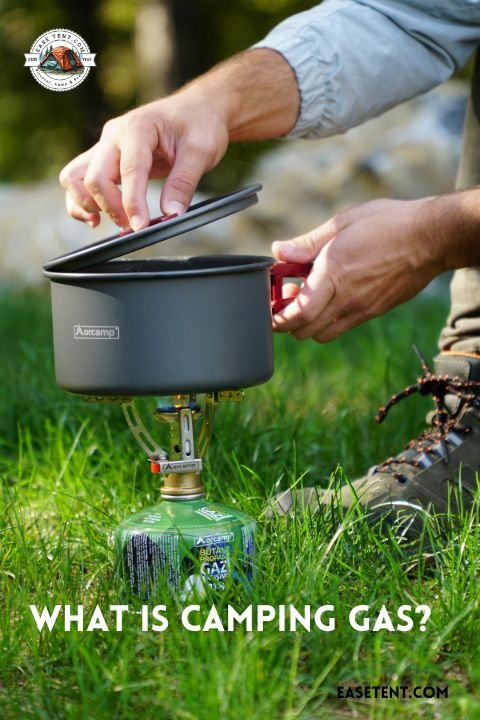
Camping gas is a sort of fuel specifically designed for portable use in outdoor activities such as camping, hiking, and backpacking. It is stored in small, lightweight canisters, which makes it easy to carry and use in remote locations where other fuel sources might not be available. Camping gas is commonly used to power camp stoves, lanterns, and heaters, providing a reliable and efficient energy source for cooking, lighting, and warmth in cold weather.
The most common types of camping gas are propane, butane, and mixed gas cylinders, which blend propane and butane. Butane and Propane gases are derivatives of liquefied petroleum gas (LPG) and as you may know, (LPG) is a byproduct of natural gas processing and petroleum refining. Here are some major features of camping gas.
Let me explain the key characteristics of camping gas to you.
Portability
Camping gas is incredibly handy. It comes in small, lightweight containers that are super easy to carry and perfect for camping, hiking, or backpacking because you don’t want heavy or bulky gear. These canisters fit neatly into your backpack, so you can easily bring them along no matter where you’re headed.
Convenience
Using camping gas is very convenient. The canisters are designed to easily connect to your camp stove, lantern, or heater. This means you can set up quickly without any hassle, giving you more time to enjoy your outdoor activities. Plus, depending on your needs, you can get either disposable or refillable canisters, which adds to the convenience.
Clean Burning
One of the great things about camping gas is that it burns cleanly. This means it doesn’t produce a lot of soot or smoke, which is better for the environment and for your health. You won’t have to deal with the mess or smell that can come from other types of fuel, making your camping experience much more pleasant.
Energy Efficiency
Camping gas is very efficient. It provides a steady and controllable flame, which is perfect for cooking and heating. This efficiency means you can cook your meals properly and safely without wasting fuel. A little bit of camping gas goes a long way, so it’s also cost-effective for longer trips.
Safety
Safety is a big deal when it comes to camping gas. The cylinders are made to be durable and leak-proof to reduce the risk of accidents and other harm. Many cans come with safety features like pressure relief valves and secure connections to ensure they work safely, even in tough outdoor conditions. Also, an odorant is added to the gas, so you can easily detect leaks, which adds an extra layer of safety.
Camping gas canisters are available in various sizes to suit different needs, from small canisters for short trips to larger ones for extended camping excursions. They are designed to be safe and reliable, with sturdy construction to prevent leaks and withstand the rigors of outdoor use.
Propane
Let’s talk about propane. You’ve probably heard of it, especially if you enjoy camping or have a gas grill at home. But what exactly is propane?
What is Propane?
Propane is a type of gas that’s part of the liquefied petroleum gas (LPG) family. Propane doesn’t have any color or odor. If you’re thinking that it might be dangerous in case of leakage because it doesn’t have any color or odor, don’t worry – a special chemical is added to give it a distinctive smell so you can detect leaks easily. This makes it much safer to use.

Why Use Propane? (Benefits)
Propane is incredibly versatile. It’s not just for camping stoves and grills. People use it to heat their homes, cook, and even power vehicles and industrial equipment. Its flexibility makes it a go-to fuel for many different uses.
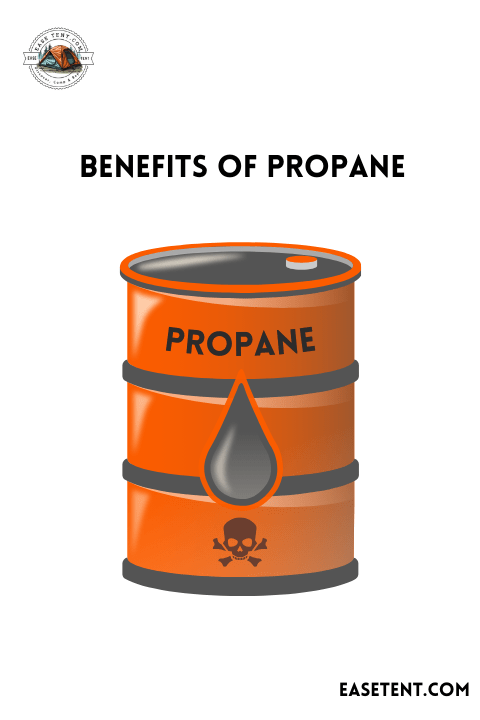
Propane in Cold Weather
One of the best things about propane is that it works great in cold weather. Unlike some other gases that struggle when temperatures drop, propane can still vaporize and burn efficiently down to -42°C (-44°F). So, if you’re camping in the winter or at high altitudes, propane is your best friend.
Widely Available
Propane can be found almost anywhere, from gas stations to camping supply stores, making it easy to access when you need it. This widespread availability ensures you can quickly refill or replace your propane containers during your trips. Whether you’re in a city or a remote area, you’re likely to find a propane supplier nearby.
Energy Efficiency
Propane packs a punch. It has a high energy content, which means a little bit of propane can produce a lot of heat. This makes it really efficient, whether you’re boiling water for coffee or keeping warm on a chilly night.
Environmental Impact
We all want to be a bit greener, right? Propane is a cleaner-burning fuel compared to other fossil fuels. When you burn propane, it produces mainly carbon dioxide and water vapor, with fewer pollutants like carbon monoxide and particulate matter. It’s not perfect, but it’s a step in the right direction for reducing your environmental footprint.
Drawbacks of propane
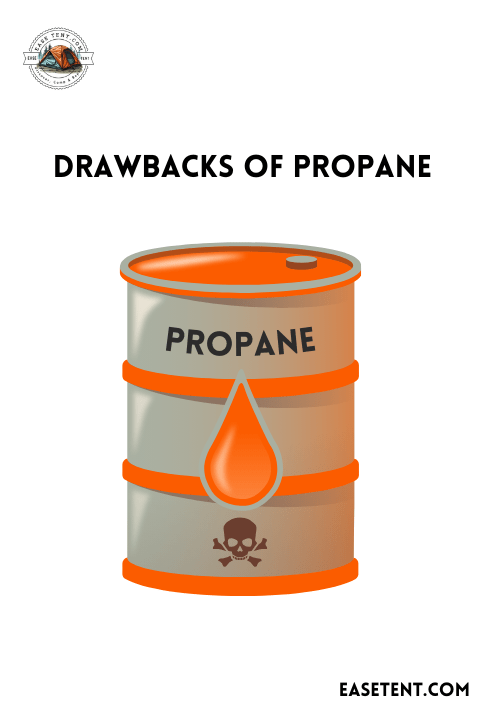
Heavy Canisters
Propane canisters are often heavier and bulkier than other fuel options. This can be a downside if you’re backpacking or need to carry your gear over long distances.
Not Ideal for Very Long Trips
If you’re going on an extended trip, carrying enough propane can be a challenge due to the weight and size of the canisters. You might need to plan for resupply points along your route.
Higher Pressure Storage
Propane needs to be stored under higher pressure, which means the containers are built to be tougher and can be more expensive. This high pressure also requires you to handle and store them carefully.
Environmental Impact
While propane is cleaner than many fossil fuels, it’s still a fossil fuel. Burning propane releases carbon dioxide, which contributes to climate change. It’s better than some alternatives, but not perfect.
What is Butane?
Butane is a type of liquefied petroleum gas (LPG) that is commonly used as a fuel for portable stoves, lighters, and small heaters. Like propane, it is a colorless and odorless gas, but an odorant is added to make it detectable in case of leaks.
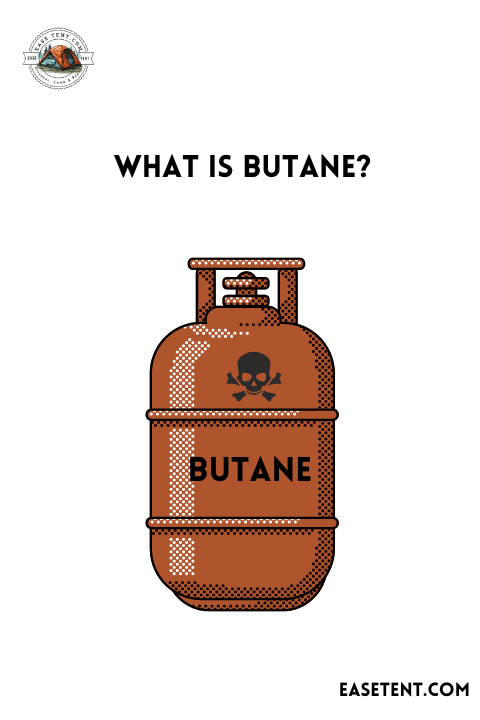
Uses
Butane is often used in camping stoves, lighters, and portable heaters. Its portability and ease of use make it a popular choice for short trips and activities in mild weather.
Why Use Butane?
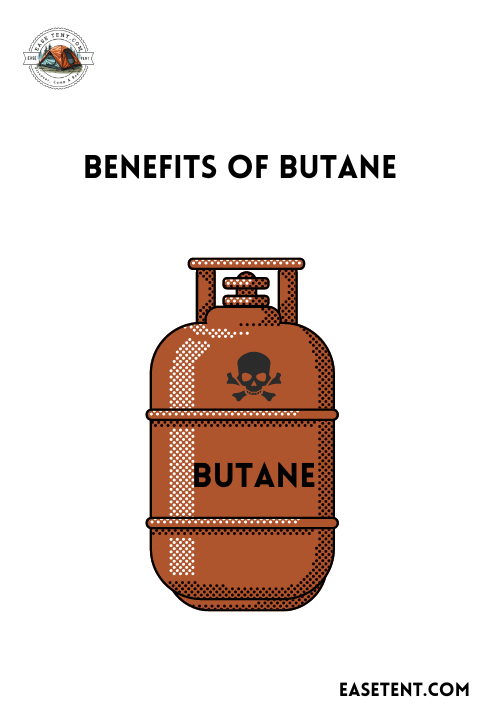
There are various benefits if you use Butane properly
Compact and Lightweight
Butane canisters are smaller and lighter than propane canisters which makes them easier to carry. This is particularly beneficial for backpackers and campers who need to minimize the weight and bulk of their gear.
High Energy Content
Butane has a high energy content per volume, meaning it can produce a strong and steady flame. This efficiency is great for cooking, as it allows you to quickly and effectively prepare meals.
Easy to Use
Butane cans are designed for ease of use. They typically have simple connection mechanisms that allow you to quickly attach them to your camping stove or lighter. This makes setup and teardown fast and straightforward.
Clean Burning
Butane burns cleanly, producing minimal soot and smoke. This is better for the environment and your health, as it reduces air pollution and the risk of inhaling harmful particles.
Drawbacks of Butane
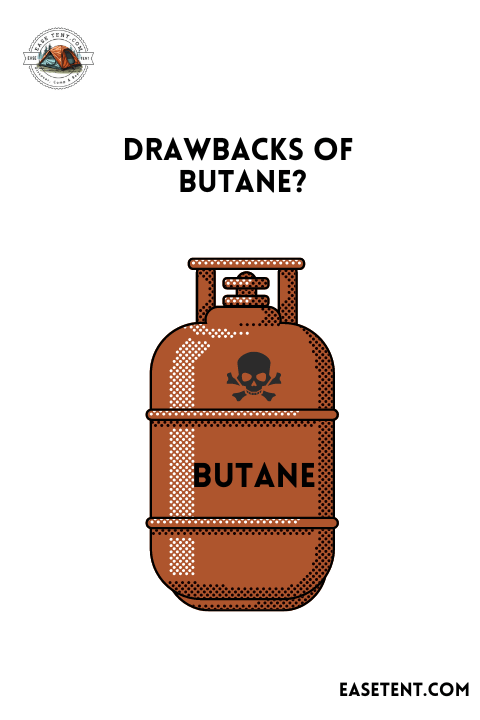
Poor Performance in Cold Weather: Butane doesn’t vaporize well at temperatures below freezing (0°C or 32°F). This makes it less reliable in cold weather or high-altitude conditions, where it might struggle to provide a steady flame.
Availability
While butane is widely available, it may not be as easily found as propane in some regions, particularly in rural or remote areas. This can make it more challenging to find refills when you need them.
Shorter Shelf Life
Butane chambers have a shorter shelf life compared to propane vessels. Over time, the gas can slowly leak or lose pressure, making it less effective if stored for extended periods.
Environmental Impact
Although butane burns cleaner than many other fossil fuels, it is still a fossil fuel. Burning butane releases carbon dioxide, contributing to greenhouse gas emissions and climate change.
Odorant for Butane and Propane
Both butane and propane are naturally colorless and odorless gases. To ensure safety, a chemical called an odorant is added to these gases so that leaks can be easily detected. The most commonly used odorant for both butane and propane is ethyl mercaptan (also known as ethanethiol).
Ethyl Mercaptan
This chemical has a very strong, distinctive smell often described as similar to rotten eggs or cabbage. The addition of ethyl mercaptan ensures that even small leaks are easily noticeable, helping to prevent accidents and enhance safety when using these gases.
So which one do you have to choose, Butane or Propane?
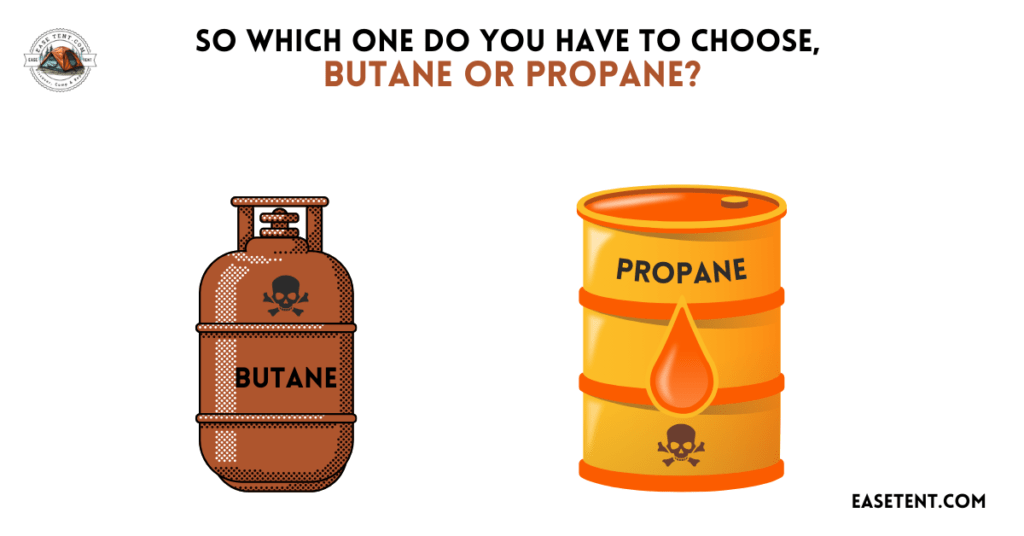
Choosing between butane and propane depends on your specific needs and the conditions you expect to encounter. Here are some considerations to help you decide:
Choose Butane If
Weight and Portability: If you’re looking for a fuel source that’s easy to carry, butane is ideal. Its cylinders are smaller and lighter than propane, which means they won’t add much weight to your backpack. This makes butane perfect for hikers and backpackers who need to keep their load light and compact.
Short Trips and Mild Weather
Butane is great for short camping trips during mild weather. It works best in temperatures above freezing, so it’s perfect for spring, summer, and early fall adventures. If you’re camping for a few days like just for weekend days then I would suggest you go for butane because it will provide a reliable flame for cooking and heating.
Convenience
If you don’t want to have any hassle during your outdoor days and want to enjoy stress-free camping days then you should opt for Butane Chambers because butane cylinders are designed to be very user-friendly. They have simple connections that make it easy to set up your camp stove quickly. This convenience is perfect for quick trips where you want to spend less time fussing with gear and more time enjoying your outdoor activities.
Choose Propane If
Cold Weather Performance: If you’re venturing into cold weather or high-altitude environments, propane should be your choice. Propane remains effective at temperatures as low as -42°C (-44°F), ensuring a reliable fuel source even in freezing conditions. For winter camping and high-altitude expeditions, propane is unmatched in performance.
Versatility and Availability
If versatility and availability are important to you, propane is the fuel to choose. It is widely available at most gas stations, outdoor stores, and even some convenience stores. This ensures that you can easily find refills no matter where you are, making propane suitable for a wide range of applications from cooking to heating.
Extended Trips
For extended trips, propane offers practical benefits with its larger capacity canisters. These canisters hold more fuel, reducing the frequency of refills and making them ideal for long-term use. Whether you’re on a prolonged camping expedition or living in an RV, propane provides a consistent and strong flame for all your cooking and heating needs.
Can’t Make Up Your Mind? Try a Mixed Gas!
If you’re having trouble deciding between butane and propane, why not try a mixed gas? Mixed gas combines the benefits of both butane and propane, offering you a versatile and flexible fuel option for your outdoor adventures.
Improved Cold Weather Performance
With a blend of both butane and propane, mixed gas canisters provide better performance in colder temperatures compared to pure butane. This means you can enjoy reliable heating and cooking even in chilly weather conditions.
Portability
Mixed gas canisters are designed to be compact and lightweight, similar to butane canisters. This makes them easy to carry in your backpack or camping gear, ensuring you can take them along on all your outdoor excursions without adding too much weight.
Versatility
Whether you’re camping in mild or cold weather, a mixed gas canister has you covered. Its combination of butane and propane means it’s suitable for a wide range of outdoor conditions and activities, offering you flexibility and peace of mind during your adventures.
By considering the specific conditions of your trip and the advantages of each type of fuel, you can make an informed decision that best suits your camping needs. Whether you choose butane, propane, or mixed gas, you’ll be well-prepared for a safe and enjoyable outdoor adventure.
FAQs
Where Does Propane Come From?
Propane is a byproduct of natural gas processing and petroleum refining. During these processes, propane is separated from other hydrocarbons and stored in liquid form under pressure. This makes it widely available and easy to transport for various uses.
Where Does Butane Come From?
Butane is a byproduct of natural gas processing and petroleum refining. It is separated from other gases during these processes and stored in liquid form under moderate pressure for various uses, such as in camping stoves, lighters, and portable heaters.
What is the chemical formula for camping gas?
The chemical formula for camping gas depends on the specific type of gas used. For propane, the chemical formula is C₃H₈, and for butane, the formula is C₄H₁₀. Camping gas can often be a mix of these two, combining their properties for better performance in various conditions.
What type of gas is camping gas?
Camping gas typically refers to liquefied petroleum gas (LPG), which is a mixture of hydrocarbons, primarily propane (C₃H₈) and butane (C₄H₁₀). These gases are used because they can be easily compressed into liquid form for portability and provide efficient and reliable fuel for camping stoves and heaters.
Which is more expensive, propane or butane?
Generally, butane tends to be more expensive than propane. This is due to the more complex refining process required to produce butane and its lower availability compared to propane. However, prices can vary based on location, availability, and market demand.
Which gas is best for a barbecue?
Propane is generally considered the best gas for barbecues. It provides a consistent, high heat output which is ideal for grilling. Propane is also widely available, easy to store in larger cylinders, and performs well in various weather conditions, including colder temperatures.
Does butane expire?
Butane itself does not expire because it is a stable gas. However, the canisters that store butane can degrade over time. The seals and valves can deteriorate, potentially leading to leaks. It’s recommended to check the canister’s condition and use it within 10 years of the manufacture date to ensure safety.
Does propane float or sink?
Propane is denser than air, so it sinks when released from a container. This characteristic is important to remember for safety reasons, as propane can accumulate in low-lying areas such as basements or pits, increasing the risk of fire or explosion.
How long will 10kg of propane last on a barbecue?
The duration 10kg of propane will last on a barbecue depends on several factors, including the size and efficiency of the barbecue, the cooking temperature, and how often it’s used. On average, a 10kg propane tank can last anywhere from 18 to 28 hours of grilling time, but this can vary widely. It’s best to monitor the fuel level and have a spare tank on hand to avoid running out during a cookout.
Is butane gas safe for cooking?
Yes, butane gas is generally safe for cooking when used properly. It burns cleanly and efficiently, producing minimal emissions and pollutants. However, it’s essential to follow safety guidelines, such as using the gas in well-ventilated areas, ensuring proper connections, and avoiding leaks. Additionally, butane is best suited for cooking in mild weather conditions, as it may struggle to perform in colder temperatures.
What color bottle is propane gas?
Propane gas cylinders are typically colored in various shades of blue, green, or silver. The specific color may vary depending on the manufacturer or distributor, but these colors are commonly used to indicate that the cylinder contains propane.
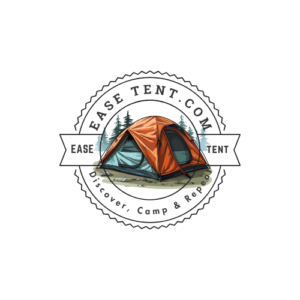
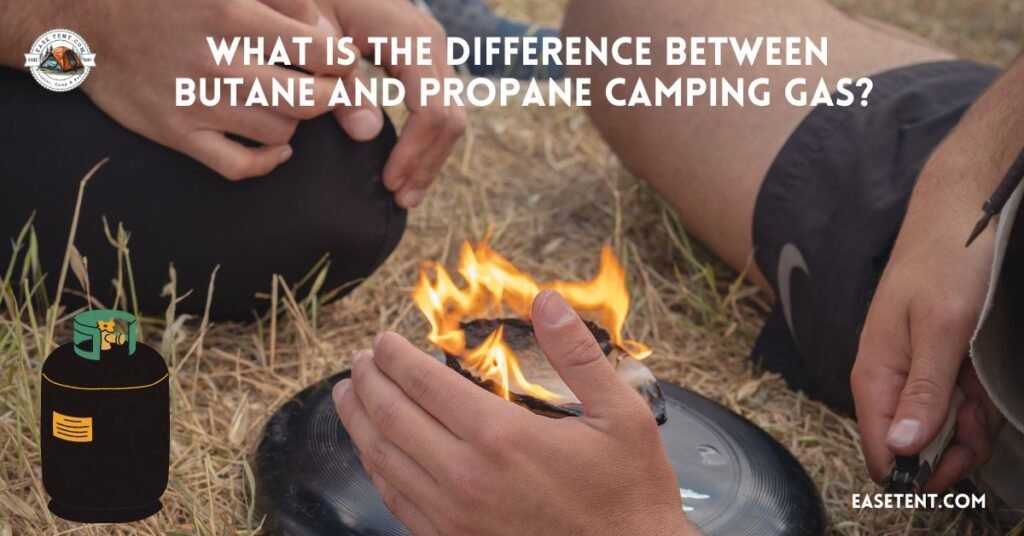
Pingback: Difference between Butane and Propane Regulators?
Pingback: How much Carbon Monoxide does a Camp Stove Produce?
Pingback: Can You Refill Camping Gas Canisters? - The Great Outdoors Blog
Pingback: RV Road Rules: What’s Safe and What's Not in a Moving Van?